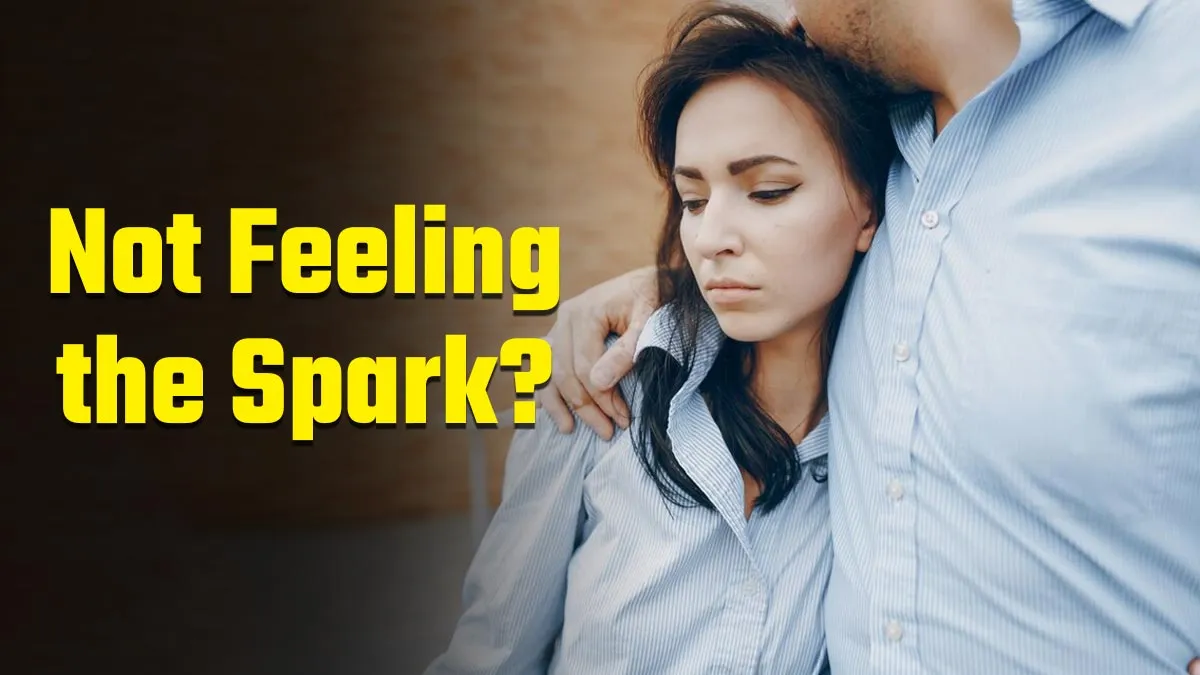
Relationships evolve over time. What starts as a whirlwind of excitement can slowly shift into something quieter, steadier, and sometimes less thrilling. It’s common to wonder why the magnetic pull you once felt toward your partner isn’t as strong as it used to be. Is it a sign of deeper issues, or just a natural phase? While physical attraction often plays a starring role early in romance, its importance can change as life throws curveballs. But does fading attraction mean fading love? And can that spark ever return? An expert explains why this happens and what it truly means for your relationship.
Table of Content:-
Role Of Physical Attraction In Relationship
View this post on Instagram
Physical attraction often acts as the initial glue in relationships. According to Vaasanthika, Therapist, Founder - Heartsease Counseling Services, Chennai, “It’s a key factor in dating decisions—it creates chemistry and excitement.” However, she emphasises that while looks might draw people together, they rarely sustain love long-term. Over the years, shared experiences, trust, and emotional bonds often matter more. Think of attraction like a campfire: it burns bright at first but needs tending to keep glowing.
That said, losing interest in your partner physically doesn’t mean your relationship is doomed. “Attraction naturally fluctuates,” says Vaasanthika. “Life changes, stress, or even comfort can dim that spark temporarily. What matters is how you address it.”
Why You Might Feel Less Attracted to Your Partner
Vaasanthika explains that attraction fades for countless reasons, many unrelated to love. Here are common factors:
- Personal Changes: Hormonal shifts (like menopause or low testosterone), ageing, mental health struggles, or chronic illnesses can alter how you view intimacy or your body.
- Life Stressors: Job loss, grief, parenting demands, or financial strain can drain energy, leaving little room for romance.
- Relationship Dynamics: Falling into repetitive routines, unresolved arguments, or emotional distance can create indifference. “You might start feeling like roommates instead of partners,” she notes.
- Major Transitions: Moving in together, getting married, or becoming parents changes priorities. Romance may take a backseat to practicality.
Importantly, asexual individuals prove that love thrives without sexual attraction. “Attraction isn’t one-size-fits-all,” says Vaasanthika. “Companionship and emotional connection can be enough for many.”
Barriers to Reconnecting Physically

Even if you want to revive the spark, obstacles can stand in the way, according to the expert:
- Unspoken Resentments: Lingering grudges over chores, parenting styles, or past conflicts can build walls.
- Fear of Vulnerability: Initiating physical touch or conversations about needs feels risky if you’re unsure how your partner will react.
- Mismatched Libidos: Differing sex drives—common in long-term relationships—can lead to frustration or guilt.
- Cultural Myths: Believing that “passion should happen naturally” stops couples from actively working on intimacy.
“Many people wait for desire to magically reappear,” says Vaasanthika. “But attraction is like a muscle—it weakens if you don’t use it.”
ALSO READ: Propose Day 2025: How to Propose a Healthier Lifestyle to Your Partner This Valentine’s Week
How to Reignite the Spark (If You Want To)
If missing physical connection bothers you, Vaasanthika suggests proactive steps:
- Talk Openly—But Gently: Start conversations without blame. Use “I feel” statements (“I miss being close to you”) instead of “You never touch me anymore.”). Focus on desires, not complaints.
- Experiment Together: Break routines. Try new date ideas, hobbies, or forms of intimacy—even non-sexual touch, like massages or holding hands, rebuilds closeness.
- Address Emotional Blockers: Therapy—individual or couples—can uncover hidden resentments or communication gaps. “Sometimes, solving a practical issue, like dividing chores fairly, improves intimacy,” says Vaasanthika.
- Prioritise Small Moments: Flirt via text. Dance in the kitchen. Hug for 20 seconds (it releases bonding hormones!). Tiny gestures create momentum.
- Normalise the Waves: “Passion isn’t constant,” reminds Vaasanthika. “It’s okay to have lulls. What matters is staying connected through them.”
Love Isn’t Just a Feeling—It’s a Choice
Losing attraction to your partner can feel alarming, but it’s rarely a death sentence for love. For many couples, the shift from fiery passion to calm companionship is natural—even comforting. However, if you crave more physical closeness, remember: that attraction can often be rebuilt with patience and effort.
ALSO READ: The Healing Power of Hugs for Stress Relief and Happiness This Valentine’s Week
Conclusion
As the expert puts it, “Love isn’t static. It adapts. You might not love your partner the same way you did 10 years ago and that’s okay. What matters is choosing each other, even when the spark flickers.” Whether you seek to rekindle desire or find peace in a new normal, every relationship has seasons. Embrace the journey it’s what makes your story unique.
Also watch this video
How we keep this article up to date:
We work with experts and keep a close eye on the latest in health and wellness. Whenever there is a new research or helpful information, we update our articles with accurate and useful advice.
Current Version